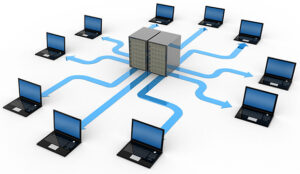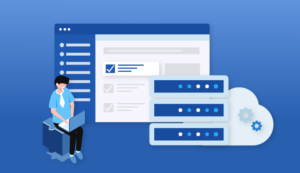In the fast-paced world of hospitality, efficient reservation management can make or break
your business. Whether you run a hotel, a campground, or a vacation rental service, having
the right booking software is crucial to streamline operations and enhance customer
satisfaction.
Here are essential tips for selecting and utilizing booking software to optimize
your reservation management process.
Tips for efficient booking software essentials you should know
Assess Your Needs
Before diving into the sea of booking software options, take a step back and evaluate your
specific needs. Consider the size of your operation, the volume of bookings, and any unique
requirements you may have.
Do you need a system that integrates with your existing
property management system (PMS)? Are you looking for a solution that supports multi-
channel booking? Identifying your needs upfront will help you choose the software that
best fits your business.
Look for User-Friendly Interfaces
The best booking software should have an intuitive and user-friendly interface. Your staff
should be able to navigate the system with ease, reducing the learning curve and
minimizing errors.
A straightforward dashboard that provides a clear overview of
reservations, availability, and customer information can significantly enhance efficiency.
Prioritize Integration Capabilities
Integration capabilities are a key feature to look for in booking software. The software
should seamlessly integrate with other tools and systems you use, such as payment
gateways, accounting software, and customer relationship management (CRM) systems.
Integration with popular travel websites and online travel agencies (OTAs) is also essential
to ensure your listings are visible to a broader audience.
Ensure Real-Time Updates
Real-time updates are crucial for avoiding double bookings and ensuring that your
availability is accurately reflected across all platforms.
Choose booking software that offers
real-time synchronization with your website, OTAs, and other distribution channels. This
ensures that once a reservation is made, it is immediately updated in the system, preventing
any potential conflicts.
Focus on Mobile Compatibility
In today’s mobile-driven world, having mobile-compatible booking software is a must.
Both your customers and staff should be able to access the system from smartphones and
tablets. Mobile compatibility allows for on-the-go management, making it easier to handle
reservations, check availability, and respond to customer inquiries promptly.
Incorporate Automated Features
Automation can significantly boost efficiency in reservation management. Look for
software that offers automated features such as confirmation emails, reminder notifications,
and follow-up messages.
Automated invoicing and payment processing can also save time
and reduce the risk of errors. By automating routine tasks, you can free up your staff to
focus on providing exceptional customer service.
Ensure Robust Reporting and Analytics
Comprehensive reporting and analytics tools are essential for monitoring your performance
and making data-driven decisions. The booking software should provide detailed reports on
occupancy rates, revenue, booking trends, and customer demographics.
These insights can help you identify areas for improvement, optimize pricing strategies, and enhance
marketing efforts.
Prioritize Security and Compliance
Security should be a top priority when selecting booking software. Ensure that the software
complies with data protection regulations such as GDPR and PCI-DSS. It should offer
secure payment processing and safeguard customer information.
Additionally, regular software updates and backups are essential to protect your data from potential breaches or
system failures.
Evaluate Customer Support
Reliable customer support is crucial for resolving any issues that may arise with your
booking software. Choose a provider that offers comprehensive support, including 24/7
assistance, live chat, and a knowledge base with tutorials and FAQs.
Prompt and effective support can minimize downtime and ensure a smooth booking process for your customers.
Test and Seek Feedback
Before fully committing to a booking software, consider taking advantage of free trials or
demos. This allows you to test the software’s features and usability firsthand.
Additionally, seek feedback from your staff and customers to ensure that the system meets their needs
and expectations. Continuous feedback and improvement are key to maintaining an
efficient reservation management system.
Consider Scalability
As your business grows, your booking software should be able to scale with you. Choose a
solution that can accommodate an increasing number of bookings, users, and properties
without compromising performance. Scalability ensures that your software investment
remains valuable and relevant as your business expands.
Opt for Customizable Features
Every business has unique processes and requirements. Booking software with
customizable features allows you to tailor the system to match your specific needs.
Look for software that lets you customize booking forms, email templates, and reporting formats.
Customization enhances the software’s functionality and ensures it aligns with your
business operations.
Monitor System Performance
Regularly monitor the performance of your booking software to ensure it continues to meet
your needs. Keep an eye on system uptime, response times, and any issues that arise.
Performance monitoring helps you identify potential problems early and address them
before they impact your operations.
Train Your Staff
Invest in comprehensive training for your staff to ensure they are proficient in using the
booking software. Well-trained staff can fully leverage the software’s features, leading to
more efficient reservation management and better customer service.
Ongoing training and refresher courses can help keep everyone up to date with new features and best practices.
Encourage Customer Feedback
Your customers’ experience with the booking process can provide valuable insights into
how well your software is performing.
Encourage customers to provide feedback on their booking experience. Use this feedback to identify areas for improvement and make
necessary adjustments to enhance the customer experience.
Hire Remote Developers for Customization and Maintenance
Hiring remote developers can be a cost-effective and efficient way to customize your
booking software and handle ongoing maintenance. Look for developers with experience in
the specific technologies and platforms your booking software uses.
Skills in integration, automation, and security are particularly valuable. Ensure the developers have a proven
track record in delivering quality work and can provide references or portfolios.
Conclusion
Efficient reservation management is vital for the success of any hospitality business. By
carefully selecting booking software that aligns with your needs and priorities, you can
streamline operations, enhance customer satisfaction, and ultimately boost your bottom
line. Keep these essential tips in mind as you evaluate and implement booking software,
and you’ll be well on your way to optimizing your reservation management process.
Implementing the right booking software not only simplifies your daily operations but also
sets the stage for long-term success and growth in the competitive hospitality industry.





